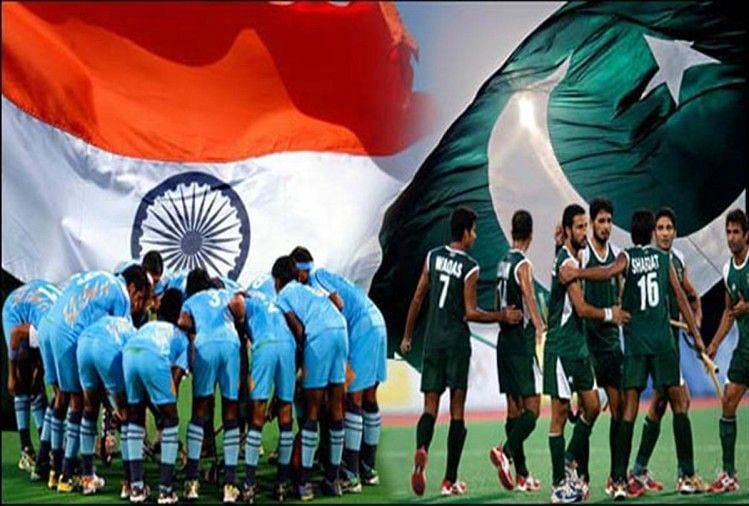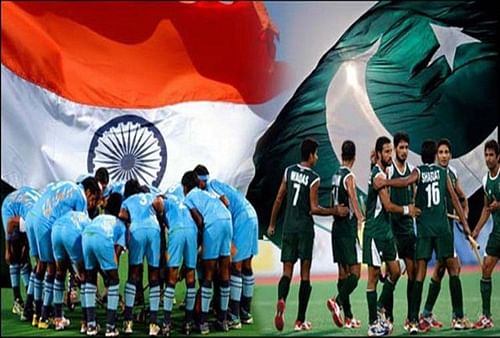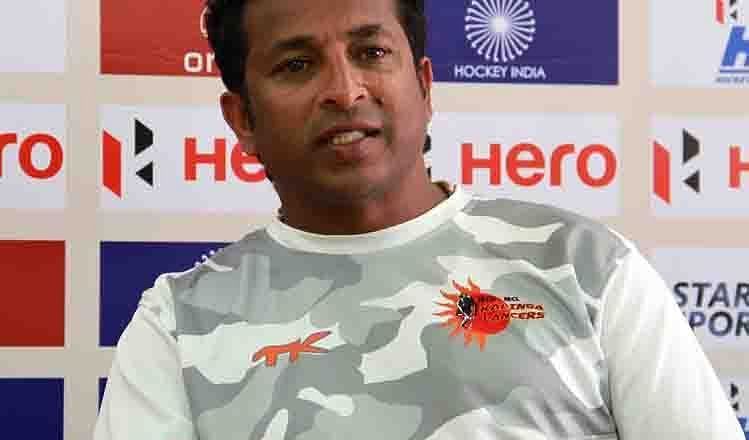
Lahore 1990 to Bhubaneswar 2018 - Jude Felix on India, Pakistan, and the Astroturf myth

It takes less than a second to tilt the scales on a pitch as defining moments in sport often flash past well before one can bat an eyelid.
So near, yet so far - will the trend change in Bhubaneswar?
With just over three minutes to go in the Champions Trophy final against Australia with the scores tied at 1-1, SV Sunil charged in from the right, cutting across a couple of Aussie defenders and delivered a peach of an assist to Manpreet who was positioned to the right of goalkeeper Tyler Lovell.
Lovell had the near post covered anticipating a possible shot from Sunil, and all Manpreet had to do was to tap the ball in at the far post - but with a split-second to react, the ace Indian midfielder failed to latch on to the ball, seeming to lose balance at the goalmouth.
It was the closest the Indians had ever come to winning a Champions Trophy gold - a dream which will now remain unrealized forever, as the Breda edition brought the curtain down on hockey's prestigious showpiece.
Thirty-four years back in time, there were three minutes left on the clock when captain Zafar Iqbal got a chance to give India the opening goal in a must-win match against West Germany in the 1984 Olympics. With only the goalkeeper to beat, at point-blank range, the great man found the post instead of the back of the net and one of the best-ever hockey teams to be assembled failed to make it to the semifinals.
Pakistan won the title at Los Angeles and the six-time gold-medalists, India has never made it to an Olympic semifinal since.
Indian hockey is replete with tales of events where we very nearly made history - but, finally did not.
Analyzing the game down the years can best be done by an individual who was in the thick of the action as a player in the 1980s and 1990s (which was a momentous phase in Indian hockey), and continues to be just as closely associated with the sport as a coach today.
When asked what India's chances are of topping the pool at Bhubaneswar, the answer from the veteran is succinct.
"We hit highs and lows quite often. Our biggest problem is that we are quite inconsistent and this is an area in which the coaches must have worked on quite a bit."
In a country where not many ex-players have taken to coaching, the former Olympian and World Cupper took the same up with gusto and is today in charge of the Indian juniors.
Harendra Singh's side has a distinct advantage of playing a World Cup at home but Jude Felix knows for sure what he is talking about when he says that mental toughness is the key for any player. After all, the Arjuna Awardee from Bangalore has been part of the most hostile World Cup ever - at least from an Indian perspective.
In an exclusive interview with Sportskeeda, the former captain who now serves the game he loves as a full-time coach, shares his wisdom, giving us rare insights into the past and present of Indian hockey and delves deeply into why he believes the subcontinental giants should not sacrifice flair for a staid European style.
Lahore 1990 - Shoes, slippers, boos, and bricks greet India
In February 1990, Pargat Singh led the Indians in the seventh edition of the World Cup which was being held across the border. An aggressive and partisan crowd at Lahore made life difficult for the Indians, so much so, that the players were given the option to return home if they wished to.
As a team, the Indians fared rather poorly, but through it all, one individual braved the storm as only he could. Australia's present coach Colin Batch was part of the squad that India lost to by a narrow 2-3 margin with Jude Felix pulling one back for his side. India finished tenth but as Jude recalls, combating the hostility was not easy.
"As a player, you have to be tough enough to play anywhere, be it home or away. That said, a home ground definitely helps without a doubt but it depends on how well you take the positives out of it."
"In 1990, we were in the midst of one of the most hostile situations ever. We had a huge Pakistan crowd coming in, and booing, throwing shoes, slippers, bricks and what have you, but I had a decent tournament. I scored four goals. I use that as an example to say that nothing bothers me. Once you are mentally tough you can just go and play, no matter what."
The "Maradona of Hockey" - Pakistan, then and now
Pakistan, meanwhile, lost in the final at Lahore but went on to win the 1994 World Cup at Sydney with the "Maradona of Hockey" Shahbaz Ahmed in peak form, and Jude states categorically that the present Pakistan team are but a shade of their old counterparts.
"The present Pakistan team is an absolute zero compared to the teams I played against. The Pakistan teams, before my time, were great too - but during my playing days, they had the world's best player - Shahbaz Ahmed."
"Shahbaz played in the 1990 and 1994 World Cups and Pakistan was simply formidable back then. Pakistan lost the finals at home in Lahore but went on win the 1994 World Cup in Sydney. What is even more phenomenal is that the team played for bronze in the Asian Games but won the World Cup only days later."
Pakistan is struggling both on and off the pitch and, as per reports, may even miss the World Cup later this month due to an acute shortage of funds. The Karnataka veteran laments the fact and stresses that world hockey stands to lose if Pakistan pulls out from the World Cup.
"It is extremely important for world hockey that the game flourishes in India and Pakistan. It will indeed be sad if Pakistan fails to make it to the World Cup as we (in India and Pakistan) have skill and flair which is dying so very fast."
"Pakistan (at least in the past) played with great flair, and luckily now we have the Dutch who play the game with similar flair. Hockey needs to come back with those ingredients failing which the game will get boring from a common man's perspective."
"Copying Europeans without success leads to decline"

It is a commonly held belief that India's fall from grace in the game of hockey was a direct result of the playing surface being changed to Astroturf which happened in a big way in the 1980s.
Yet, Jude who has witnessed the huge transformation firsthand refuses to pin the blame on the pitch, directing his displeasure at the state of affairs of the hockey academies where youngsters are being taught the European style of hockey.
The subcontinental flair, he says, is what brings in the crowds and it is not physically feasible for the Indians to imitate European methods. Old skills like disguised and feint passing need to be encouraged instead, as per the man who coached the Indian juniors to a silver at the Sultan of Johor Cup last month.
"We have our own style and I feel we are born to play hockey with our wrists. We should not lose those skills as they still hold good for us."
"We need to have as many Astroturf surfaces as possible - if a small country like Holland can have more than a thousand such surfaces, why can't India? The reason for the decline is not Astroturf though."
"The decline of hockey in India (and in Pakistan) was a result of the nurseries of hockey (like SAI), who do most things correctly but have forgotten our very own styles of play and our strong points like playing with the wrists, looking to one side and passing to another, and playing the wrong foot."
"In my days, if you were a spectator, you would not know where the ball was going as no one could guess which way I would pass. We have now started to copy the Europeans which is not possible since they are physically stronger, taller, bigger, and a lot more powerful."
"The Europeans have their own style of play and we have begun to try and imitate their methods. Over the years, that is what has happened at the SAI hostels (and the other academies) which has led to players coming into the national teams without the flair which both India and Pakistan are famous for."
"The way I guide the juniors is to teach them powerful hockey without forgetting the skills of old."
"Thin line between playing well and getting overawed by the occasion"
Jude may have been a coach who has seen the youngsters blossom but is emphatic that the World Cup needs experienced players and the selectors are taking a chance by fielding a very young squad.
"Hardik is a very good player - if he does well at the World Cup, he will be literally soaring, but again, it's a risk that you take. There is a very thin line between playing well and getting overawed by the occasion."
The Indians have been drawn alongside Belgium, Canada, and South Africa. The Belgian Red Lions have long been a thorn in India's flesh - indeed, who can forget the Olympic quarterfinal loss of 2016? The Indians did, however, earn a creditable draw against Shane McLeod's boys in the Champions Trophy and consistency is vital, feels Jude.
"For a World Cup, you need experienced players. Belgium is a tough side to beat and will come thoroughly prepared for sure. Canada is a relatively weaker team but even they would come prepared considering this is a World Cup, so it all depends on how consistent we are."
"Foreign coaches have to deliver for the amounts they are paid"
Jude believes that while the country needs many more coaches and the standards need to improve, the ones from abroad have no choice but to deliver.
"I have always maintained that we have to improve our coaching standards in this country. For a country as big as ours, we should ideally be having a whole panel of coaches. We are definitely short of coaches."
"Coming to the foreign coaches, for the amounts that they are paid, they have to deliver. Considering the pay packages which they come with, they have to be held responsible for the results."
So, would Jude fancy the role of head coach of the senior men's team someday?
"I wanted to play hockey as a young kid - I did so and was successful. I played for 12 years and Ioved the experience. My love and passion for the game led me to coach and I have been at it for many years now."
"I do know what it takes to coach the senior men's team and if given a chance, I would grab it, provided I get the right support. I would teach my boys the hockey which Indians (and Asians) are known for."